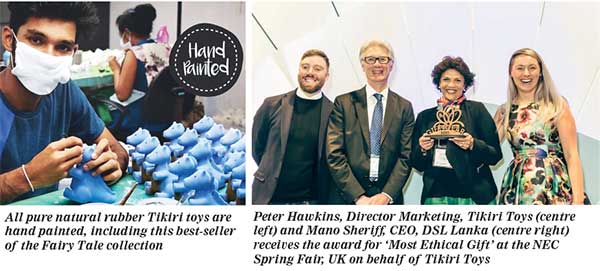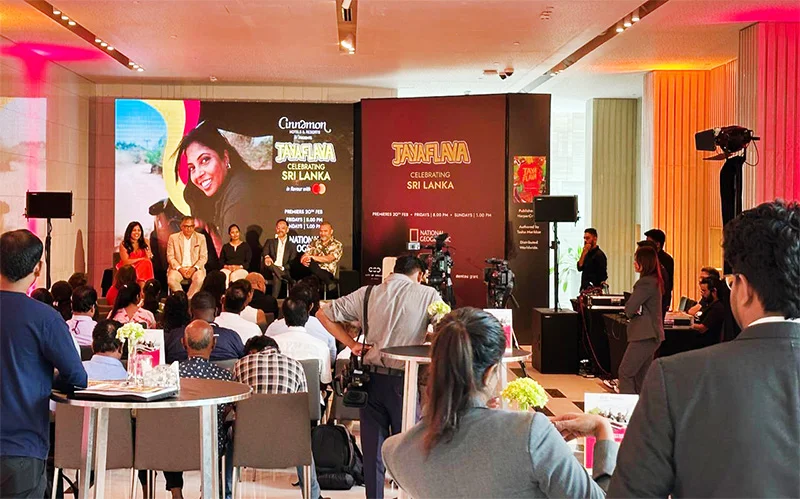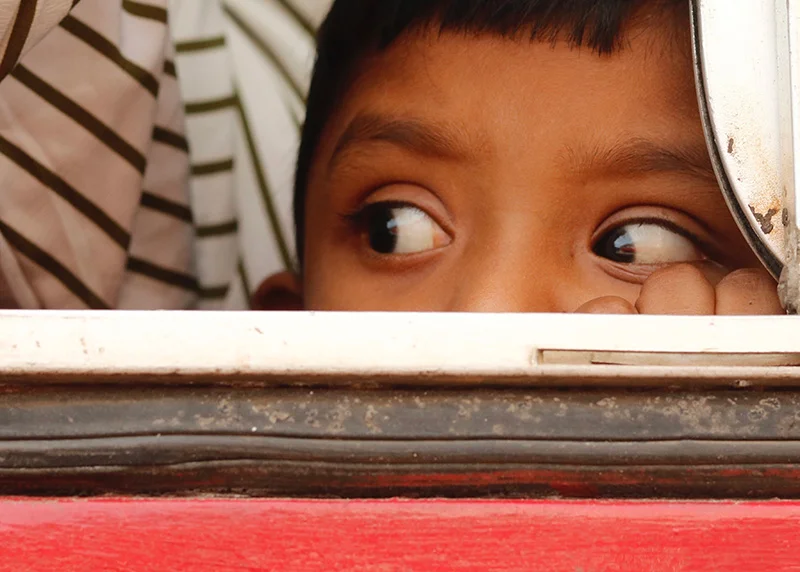Business
Tikiri Toys wins distinguished Most Ethical Gift award at NEC Spring Fair UK

Tikiri Toys – the hugely successful Sri Lankan brand of natural play products – has been awarded the prestigious ‘Ethical Gift of the Year’ title at the recently held NEC Spring Fair Birmingham 2020.
DSL Lanka (Pvt) Ltd., manufacturer of the locally-designed and produced toys that have captured the hearts of toddlers and infants the world over, and chief exporter of organic toys from Sri Lanka – was one of only 14 recognized at this year’s Gift of the Year Awards ceremony, organised by the Giftware Association UK. The CEO of DSL Lanka, Mano Sheriff, and Dr. Lakmini Mendis, the Minister of Commerce, Sri Lankan High Commission in London, were present at the awards ceremony to receive the distinguished title.
Backed by over a decade of producing and exporting toys, DSL Lanka officially launched the Tikiri brand in 2013 with its inaugural range of handcrafted, ethical dolls: the highly successful Bonikka collection. The first -and still, only- Sri Lankan toy brand to export high-quality, organic stuffed toys across the globe, DSL Lanka has created its lovable Tikiri, and Meiya & Alvin collections, much to the delight of clients in over 46 countries across the globe. From a humble production facility in 1991, the company’s signature brand of safe and endearing playthings has since received many a prestigious industry certification, and now also operates from Sales & Marketing offices in the UK and the USA. Just last year, DSL Lanka produced and shipped nearly 2 million toys, contributing significantly to the country’s GDP, a company news release said.
“What differentiates Tikiri products from others is its wide portfolio of only top-quality, handcrafted toys that not just promote childhood physical and emotional development, but are also environmentally sustainable, as well as ethical in production,” the release said.
“All components of each Tikiri play product are made with reverence to the child as well as the environment, with materials that are eco-friendly, non-toxic, and durable. The stuffing elements comprise of reclaimed recycled plastic bottles – a superior alternative to other natural materials which dry poorly and have a greater risk of forming mould – and all rubber components are fashioned from natural rubber – that is BPA-free, phthalate-free and PVC-free – sustainably harvested from the Hevea tree. Paints used are made from non-toxic dyes, making it safe for teething newborns, and even the packaging is manufactured from recycled board and soy-based inks. Furthermore, the toys are machine washable for hygiene and longer use. “
“This award is a highly respected industry accolade, and we are absolutely delighted that Tikiri, an inherently Sri Lankan brand, was chosen as ‘Ethical Gift’ of the year,” said Mano Sheriff, CEO of DSL Lanka. “Tikiri and its wide portfolio of infant and toddler products have always stood by the physical and emotional developmental benefits of play, and we will continue to promote to our local and international customers its positive impact on childhood, alongside our own personal values of ethical and sustainable production.”
Business
A nation reframed through food: Sri Lanka’s historic National Geographic debut

By Ifham Nizam
On a bright Colombo morning, beneath the polished lines of Cinnamon Life at City of Dreams Sri Lanka, Sri Lanka quietly redrew the contours of its global image.
This was not merely a programme launch. It was a recalibration.
For the first time, a Sri Lankan-made food and travel series will premiere across South Asia on National Geographic — a platform synonymous with global storytelling. In a region where culinary diplomacy has long been monopolised by larger neighbours, Sri Lanka has chosen its entry point carefully: flavour.
Jayaflava: Celebrating Sri Lanka is a six-part travel and food series hosted by Tasha Marikkar, airing on National Geographic South Asia. It premieres on Friday the 20th at 8.00 p.m., with a repeat on Sunday at 1.00 p.m. The series will broadcast across India, Sri Lanka, Bangladesh, Nepal and the Maldives — positioning Sri Lanka’s culinary identity before one of the most dynamic regional audiences in the world.
The series is the brainchild of Marikkar — author, food storyteller and an unapologetic champion of Sri Lankan cuisine. What began as a cookbook evolved — through persistence, private backing and creative risk — into a broadcast production that now carries Sri Lanka’s culinary narrative beyond its shores.
“This was never just about recipes,” Marikkar told the audience. “It was about representing Sri Lanka as it truly is — multi-ethnic, modern, chaotic, generous and absolutely obsessed with flavour.”
Her long-time collaborator Afdhel Aziz framed it in strategic terms.
“Sri Lanka has always had depth and brilliance,” Aziz said. “What it hasn’t always had is ownership of its narrative. When you tell your story authentically on a platform like National Geographic, you’re not just entertaining — you’re reframing perception.”
Perception, in tourism economics, is currency.
Bakmee Perera Vice President – Communications Planning and Media Strategy at Dentsu Grant Media, described the partnership with National Geographic India — part of the Jio Star Network and Disney International — as a structural milestone.
“This marks Sri Lanka’s first long-term content partnership agreement with an international network,” she said. “It extends beyond linear television into digital platforms. It is a significant step in global content affiliation.”
For Sri Lanka’s hospitality industry, the timing is strategic. Indian arrivals have rebounded strongly, surpassing pre-2018 levels, and industry leaders see culinary storytelling as a natural extension of destination branding.
Kamal Munasinghe, Senior Vice President – Colombo Hotels at Cinnamon Hotels & Resorts and General Manager of Cinnamon Life, put it plainly.
“We have always spoken about sun, sea and sand,” he said. “But we have not spoken enough about our food. Other destinations have built tourism identities around cuisine. Sri Lanka has not done enough in that space.”
He recalled stopping on the roadside en route to Ella for oil roti served with mushroom curry — a humble meal prepared by a woman supporting her family.
“That is the story we are bringing to the world,” he added. “There is culture, resilience and love in that plate.”
Cinnamon Hotels & Resorts, the title sponsor, features four of its properties in the series, including Cinnamon Grand Colombo, Cinnamon Wild Yala and Cinnamon Bentota Beach — the latter a tropical modernist icon designed by Geoffrey Bawa.
Bawa once reframed Sri Lanka architecturally, merging landscape with structure in ways that drew global admiration. In many respects, Jayaflava attempts a similar reframing — merging food, people and place into a narrative that feels both intimate and expansive.
The series moves through midnight kottu stalls, animated kitchen debates, artists’ studios and coastal bars. It captures contradiction — humour alongside hardship, ambition alongside nostalgia. It is not polished tourism propaganda, but textured storytelling.
Sri Lanka has often been presented to the world as either idyllic escape or troubled headline. Rarely as complex, contemporary and confident. By choosing food — the most universal of connectors — as its narrative vehicle, the country sidesteps cliché and leans into authenticity.
As the morning launch concluded, one message lingered: this is not simply a television debut. It is soft power in motion.
A nation, reframed — one dish at a time.
Business
Bourse buoyed by IMF chief’s positive observations

CSE grading was brisk and investor sentiment rose to a great extent when
the International Monetary Fund’s Managing Director Kristalina Georgieva, who is on a visit to Sri Lanka, made positive remarks on the progress of the local economy.
She made these comments after meeting President Anura Kumara Dissanayake and other relevant officials.
Consequent to these developments both indices moved upwards. The All Share Price Index went up by 37.02 points, while the S and P SL20 rose by 47.12 points.
Turnover stood at Rs 5.66 billion with nine crossings. Those crossings were reported in ACL Cables, where 1.5 million shares crossed to the tune of Rs 154.6 million; its shares traded at Rs 103,CW Macky two million shares crossed for Rs 82 million; its shares sold at Rs 41, Dipped Products 1 million shares crossed for Rs 61 million; its shares traded at Rs 58.
Colombo Dockyard 350,000 shares crossed to the tune of Rs 56.3 million; its shares traded at Rs 151, HNB 100,000 shares crossed for Rs 45.5 million; its shares traded at Rs 455,Royal Ceramics 500,000 crossed for Rs 25.5 million; its shares sold at Rs 51 and JKH one million shares crossed to the tune of Rs 22.4 million; its shares sold at Rs 22.40.
In the retail market top seven companies that mainly contributed to the turnover were; Softlogic Capital Rs 511 million (51.2 million shares traded), ACL Cables Rs 439 million (4.2 million shares traded), Asia Siyaka Rs 307 million (19.5 million shares traded), Sampath Bank Rs 251 million (1.6 million shares traded), HNB Rs 231 million (507,000 shares traded), Softlogic Finance Rs 205 million (31.4 million shares traded) and HNB Finance Rs 171 million (19 million traded). During the day 289.2 million share volumes changed hands in 42524 transactions.
It is said that the banking and manufacturing sectors performed well. Sampath Bank, for instance, was notable. Financial sector too performed well; especially Softlogic Finance.
Yesterday the rupee was quoted at Rs 309.42/44 to the US dollar in the spot market from Rs 309.40/50 the previous day, dealers said, while bond yields were broadly steady.
A bond maturing on 15.10.2029 was quoted at 9.40/45 percent.
A bond maturing on 01.03.2030 was quoted flat at 9.50/53 percent.
A bond maturing on 15.03.2031 was quoted at 9.70/75 percent, from 9.68/72 percent.
A bond maturing on 01.10.2032 was quoted at 10.10/42 percent, up from 10.10/13 percent.
A bond maturing on 01.06.2033 was quoted at 10.38/43 percent, up from 10.35/40 percent.
A bond maturing on 15.06.2036 was quoted at 10.60/65 percent.
An auction of Rs. 60,000 million Treasury bills was going on.
By Hiran H Senewiratne
Business
A photograph of a Jaffna youth becomes a global symbol for Sri Lanka’s stalled reconciliation

In the world of travel photography, some images do more than showcase a destination; they act as a silent mirror to a nation’s unresolved history. When British photographer Mark Julian Edwards’ portrait, ‘The Boy on the Bus,’ claimed the People’s Choice Award at the 2026 Travel Photographer of the Year (TPOTY) awards, it did more than celebrate technical brilliance. It signaled that the global community is still fixated on the scars of a region where the promise of a post-2009 peace has yet to be fully realised.
While the current NPP government often celebrates a ‘reunited’ Sri Lanka under President Anura Kumara Dissanayake, this award-winning shot turns the gaze toward Jaffna – a city that remains the emotional and political epicenter of the North-South divide. Captured through a rusting bus window, the boy’s expression – described as ‘fragile yet incredibly resilient’ – speaks to the persistent chasm between the North and the South that has remained unbridged nearly two decades after the war’s end.
Whatever the rhetoric from political platforms regarding the end of distrust, the international resonance of this image suggests that the world recognises a different reality. The capture of a northern commute is not merely a travel detail; it is a reminder of a landscape where the path to a predictable future is still viewed through a prism of distrust and uncertainty.
The significance of this win lies in its source: the public vote. Out of 20,000 entries, thousands of people from 160 countries chose this specific face. This global endorsement serves as a poignant reminder that while the local reconciliation process may be stalled in policy and paperwork, the human element of the conflict continues to haunt the international imagination.
The boy represents a generation born after the guns fell silent, yet his quiet, searching eyes reflect the weight of a reconciliation process that many feel has been more about infrastructure than true social healing. In the North, where the dust of history is still settling, such images strip away the veneer of normalcy to reveal the underlying scars that politicians often ignore.
The success of Edwards’ work comes at a time when the Sri Lankan Tourism Bureau and Jetwing Hotels are looking to nurture the next generation of local storytellers. However, the global acclaim for ‘The Boy on the Bus’ suggests that the most vital stories to be told are not the ones that look like postcards, but the ones that acknowledge the sensitivity and professional excellence required to document a people still waiting for a ta truly inclusive future.
As this image makes its way into international galleries and media outlets like the BBC, it stands as a testament to a hard truth: a photograph can win international accolades but the bridging of the political and social chasm remains Sri Lanka’s true, unfinished business.
The 2026 Travel Photographer of the Year winners were showcased and celebrated in Sharjah – UAE, Birmingham – UK and Rome – Italy. This year’s programme includes a special mentorship and winners’ trip to Sri Lanka, hosted by the Sri Lanka Tourist Board and Jetwing Hotels.
By Sanath Nanayakkare
-

 Life style5 days ago
Life style5 days agoMarriot new GM Suranga
-

 Business4 days ago
Business4 days agoMinistry of Brands to launch Sri Lanka’s first off-price retail destination
-

 Features5 days ago
Features5 days agoMonks’ march, in America and Sri Lanka
-

 Features5 days ago
Features5 days agoThe Rise of Takaichi
-

 Features5 days ago
Features5 days agoWetlands of Sri Lanka:
-

 News5 days ago
News5 days agoThailand to recruit 10,000 Lankans under new labour pact
-

 News5 days ago
News5 days agoMassive Sangha confab to address alleged injustices against monks
-

 News3 days ago
News3 days agoIMF MD here













